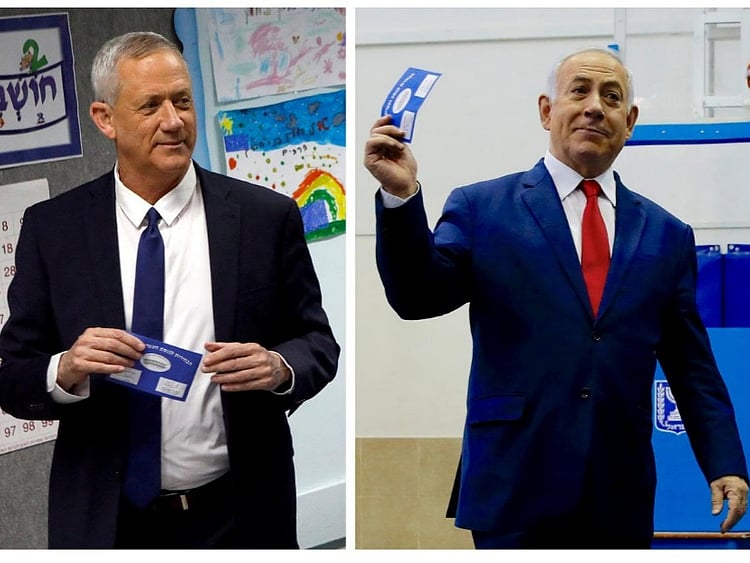Israel’s political impasse can have wide-ranging implications
It leaves Trump’s so-called ‘Middle East peace plan’ in the lurch

Israel’s president last week tasked its former military chief Benny Gantz with forming a coalition government after Benjamin Netanyahu’s efforts to do so ended in failure. Gantz now has 28 days in which to form his own coalition. President Reuven Rivlin has said he expects all political parties to make “concessions”.
After inconclusive elections in April and September, a record third election is a distinct possibility. But, recent polls indicate such an election may most likely produce the same kind of deadlock as the first two votes.
Gantz’s nomination marked the first time since 2008 that someone other than Netanyahu has been asked by Israel’s president to form a government. Earlier, Netanyahu failed to bring Gantz’s centrist Blue and White party into a national unity government with the right-wing Likud party that he heads.
Gantz was the chief of the regime’s military from 2011 to 2015. As such, he has been involved in all manner of illegal operations against the Palestinians under occupation, especially in Gaza. Inside Israel, though, he has spoken of “national reconciliation” – but has vowed to keep ultra-Orthodox Jewish extremist parties out of government, which were the backbone of the Netanyahu regime.
He wants to head a government of secular Zionist parties. From that perspective, a solution would be to team up with Likud, but Gantz refuses to agree to a power-sharing deal with Likud as long as Netanyahu is the party leader.
Also, Netanyahu could very well be indicted for graft. However, the Likud doesn’t seem to eager to dump Netanyahu. As such, Gantz’s chance of getting the support of a majority of parliament’s 120 members is slim.
The other option for Gantz is leading a minority government, with outside support of parties that are not part of his coalition in parliament.
From the perspective of the regime, the political impasse can have major, and wide-ranging implications. To begin with, it leaves the Trump administration’s so-called “Middle East peace plan” in the lurch.
The plan has been roundly thrashed, not only by all segments of Palestinian society but also most of the international community. It is rightly seen as being hopelessly biased in favour of the Israeli regime, even before it is officially unveiled.
Jared Kushner, a White House adviser and President Donald Trump’s son-in-law, is the brain behind the so-called peace plan. He is due to meet Gantz to determine where things stand.
Domestically, the impasse also blocks progress on narrowing the country’s burgeoning budget deficit and fixing persisting problems such as the state of the country’s infrastructure.
Sign up for the Daily Briefing
Get the latest news and updates straight to your inbox
Network Links
GN StoreDownload our app
© Al Nisr Publishing LLC 2026. All rights reserved.